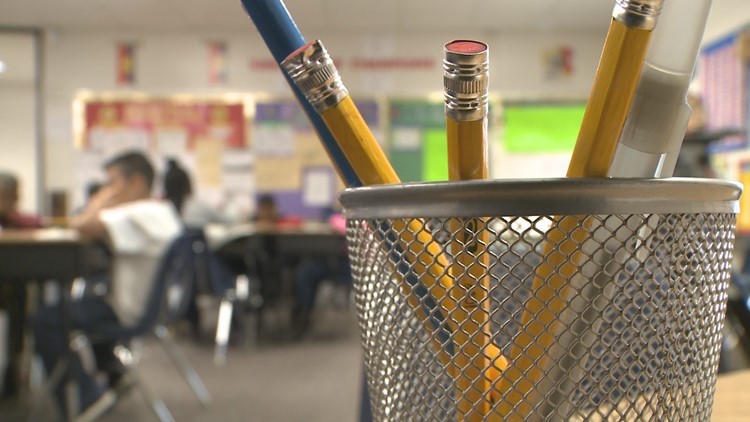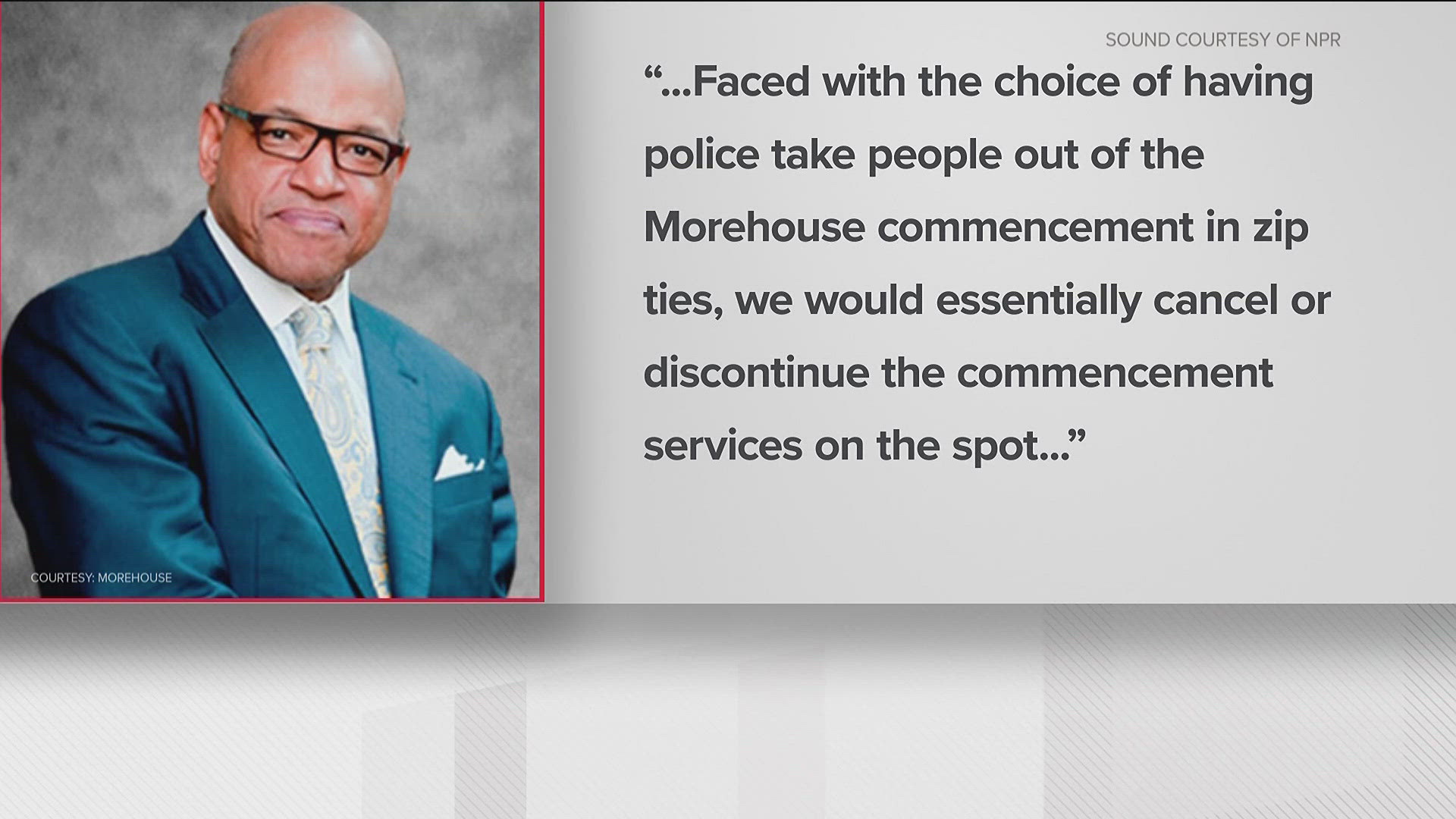ATLANTA -- Theft, vandalism, drugs and alcohol. They are problems high school principals have to deal with every week. But 11Alive learned these are also reasons why elementary school students are being suspended - at what some feel is an alarming rate.
We proudly proclaim our children our future. Young faces filled with hope. It's hard to imagine what they could do at age 8 -- let alone 5 -- could do to get suspended from school.
But one mother told 11Alive's Rebecca Lindstrom that her son was kicked out for failing to sit still. In an open records request we found kindergarten students in Fulton County suspended for boisterous activity or horseplay.
"We are treating children like they're little adults. They're not," said Marlyn Tillman, a parent with Gwinnett SToPP, a group aimed at stopping what they see as needless suspensions.
Tillman believes too many schools in districts across the state, use suspensions as an easy way out. She cites one boy who was suspended for stealing school property.
"The school property was candy sitting on a teachers desk in an open candy dish and he took it without asking," she explained.
According to the Department of education, 14,292 students in public PreK through third grade were sent home for at least one day last year. The main reasons were student incivility, disorderly conduct, battery and fighting.
"We know some kids are unruly and we know some kids don't obey," admits State Rep. Wayne Howard (D-Augusta).
Sometimes, he says, students don't understand the severity of a simple mistake. Last year, 813 students were suspended for bringing an unapproved item to school. Of those, 389 were knives. Ten were guns. Tillman says its sounds horrific, but there's rarely intent to harm and always more to the story. She knows one boy suspended after turning in his Boyscout knife as soon as he realized it was in his backpack.
"What did that teach that child? Well keep my mouth shut. If I do anything wrong, don't fess up, don't take accountability," said Tillman.
Rep. Howard says that kind of zero tolerance doesn't help anybody, especially when children are so young. He introduced a bill that would severely limit when students at or below third grade could be suspended.
"That's the time when kids are learning to read and after third grade they are reading to learn. If they don't learn to read and they are continuously suspended then this escalates," said Howard.
Escalates he argues, into high school dropouts and even criminals. There are similarities between preschool suspension and adult arrest rates. According to the US Department of Education black students make up 18% of the preschool population, but 48% of the suspensions. Most of them - 79% - are boys. Some call it the preschool to prison pipeline.
"What you're saying is school is not for them. So when they come to school and they're put out, they're learning... I'm not acceptable. It's not a place for me," argued Tillman.
But Bob Burgess, the Director of Student Discipline for the Gwinnett County school district says he has another idea. PBIS - Positive Behavioral Interventions and Supports.
"It seeks to find out a function of a behavior, why are you acting this way?," explained Burgess.
Gwinnett has implemented PBIS in 57 schools, including Lawrenceville Elementary, where in the past two years he says the school has reduced its suspension rate by 60%. He says PBIS shifts the focus from discipline -- to setting clear expectations for things like respect and accountability -- and then rewarding positive behavior.
"Teachers look for those opportunities to say thank you for being respectful, thank you for being ready," explained PBIS coach Paul Parker.
He says the program is more than high five's for a job well done. His goal is to get to the root of any serious disciplinary problems and seek solutions to correct the behavior.
"It might have been a fight at home that night. We've had situations where a parent might have been deported and he has all this anger," said Parker.
Out of nearly 2,300 public schools, the DOE says only 245 schools are using PBIS and 11Alive's review of the schools found most districts focus on middle and high school. Not elementary.
Burgess admits the success of PBIS varies on the school's buy in and teacher attitudes toward it. PBIS requires training and regular meetings to review how students and disciplinary methods are working and discuss other options. It also involves building relationships with the Department of Juvenile Justice, courts and other community partners.
Tillman says she's seen some schools turn PBIS into a glorified reward program, ignoring the critical component of analyzing a child's individual behavior and finding unique ways to meet their needs. But she says doing nothing is even more concerning and encourages lawmakers to allocate more funding for training.
"Third grade is when there gets to be that total connection with school or that total disconnect with school and we have to capture our children," said Tillman.
Right now there's another $250,000 in the budget to expand PBIS - but Tillman says that will only be enough to train about a dozen more schools.
Howard says while it's unlikely his bill will pass this session, the legislature has realized this is a problem we must solve. They set up a study committee to look for long term solutions.
According to the Department of Education, there were 609,918 public school students in K-3rd grade. Of those, 14,292 were suspended at least one day.
Top 10 Reasons for PreK-3 suspensions:
- Student Incivility (4748)
- Disorderly Conduct (3989)
- Battery or Fighting (3964)
- Weapons or other unapproved items (813)
- Threats or intimidation (741)
- Sexual battery, harassment or other sexual offense (425)
- Bullying (414)
- Vandalism (127)
- Tobacco, drugs or alcohol (38)
- Serious bodily injury (22)



